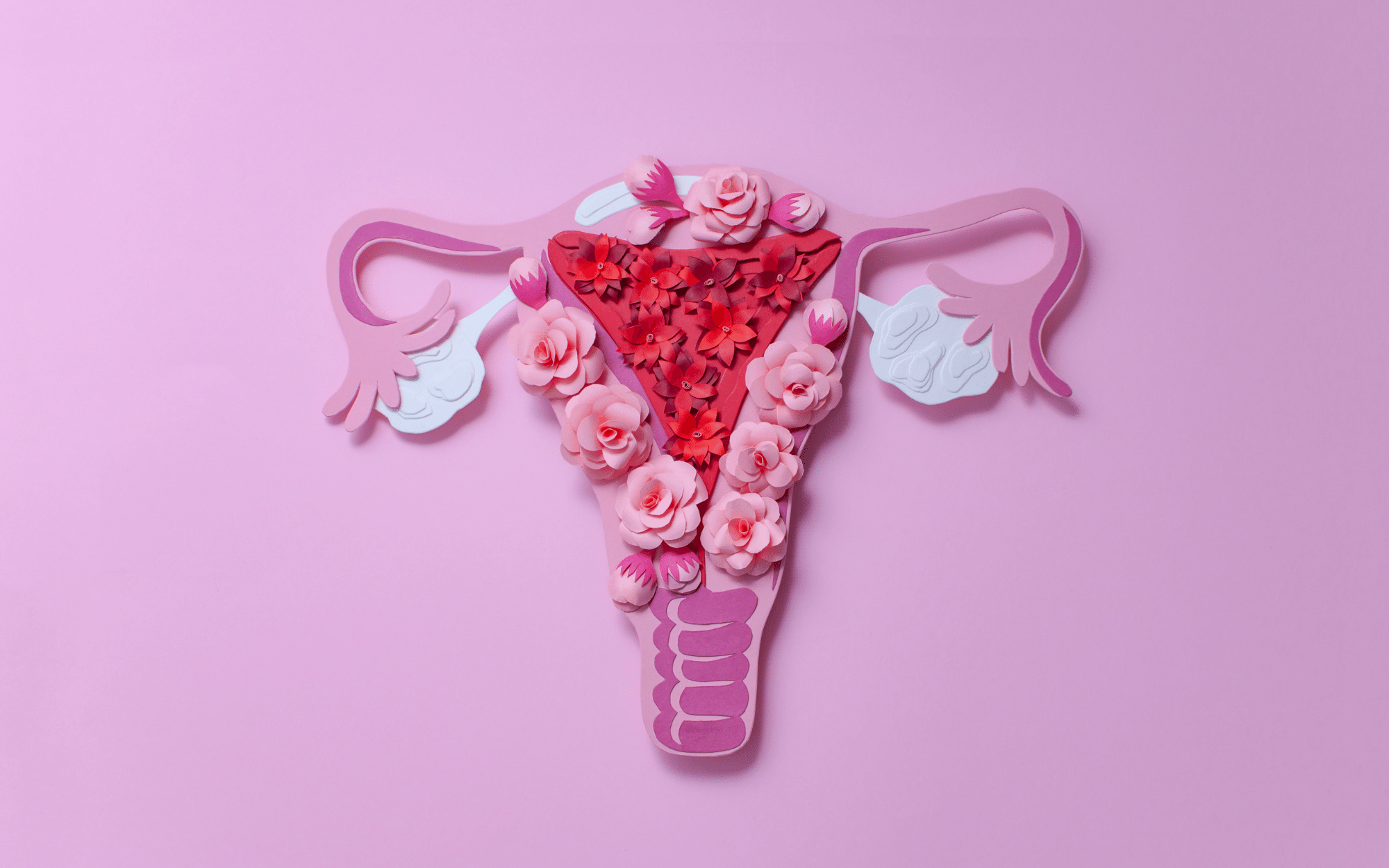Let’s Talk: Taboos and Stigmas Around Women’s Health & UTIs

Okay, ladies. We need to talk. Women’s health affects half of the world’s population on a daily basis. So why do 45% of women say they never talk to anyone about their vaginal health?
The truth is, society has stigmas around women and sex. Having it, talking about it, and all of the health concerns that come along with it. (Hands up if you’ve ever felt personally victimized by a painful UTI?)
It’s time to normalize the most normal thing about us. But to start talking openly about women’s health and UTIs, we need to understand what the stigmas are, the taboos they’ve created, and how we can all feel supported to join the conversation.
Why don’t we talk about women’s health?
From puberty to childbirth to menopause, women are impacted by their reproductive and sexual health at every stage of their lives. Still, stigmas around women’s health have effectively stopped most women from talking about it. In fact, 65% of women struggle to even say the word “vagina”. What gives?
The issue is nothing new. Women have been taught to keep quiet about their sexual health for centuries. Even though society has worked hard to liberate women over the past few hundred years, the vagina stigma hasn’t quite caught up. It’s been passed down from generation to generation, from mother’s to daughter’s, and is still ingrained in our institutions today.
So, why does it matter? Why do we need to talk about it? The stigma around women’s health actually poses a major health threat. Gynecological cancers have a 40% mortality rate - the worst of all cancers for women. Meanwhile, 20% of women don’t show up for their scheduled Pap smears. What’s worse? Almost a third of women ages 16 to 35 avoid talking about any gynecological issues with their doctor because it’s just too “embarrassing”.
Simply put, this stigma is serious. And over the years, it has snowballed into some pretty silly taboos.
Let’s talk taboos: from UTIs to the “V” word
Can you say vagina?
Believe it or not, just saying the word vagina is a major taboo for most women. Even though it’s a medical term, a recent study found that women aged 16 to 26 substitute it for “lady parts” or “women’s bits” exclusively. Meanwhile, over half of all women find it hard to say the V word at all.
But it doesn’t stop there. Only 50% of women ages 26 to 35 can accurately locate the vagina. It turns out if we can’t say it, we also can’t find it.
The dreaded UTI
One out of every two women have had a UTI. That’s half the female population! And if you haven’t had one yet, it’s estimated that 50% of women will suffer one in their lifetime. Yikes.
What exactly is a urinary tract infection? It’s an infection found in any part of your urinary system. UTIs typically occur when bacteria enters the urethra and travels up to the bladder. To treat a UTI already in progress, you’ll need antibiotics prescribed by your doctor. If you think you might have one, an at-home UTI test strip will give you the lowdown.
Its annoying symptoms have turned the UTI into a hush-hush topic. From excessive peeing to pelvic pain, most women would rather hope it goes away than talk about an effective over-the-counter UTI treatment. This is risky business. An untreated UTI could reach the kidneys and cause serious damage to the entire system.
Pee problems
Feeling the burn? You know the one. That buuurning sensation when you pee. This is one of the most common side effects of a UTI and one of many that women don’t like to talk about.
But it doesn’t stop there. Blood spots, E. coli in urine, cloudy pee and even a not-so-cute odour are all signs that a UTI has popped up to say hi.
Contrary to popular belief, these symptoms can’t be completely avoided simply by peeing before and after sex. In fact, you don’t even have to be sexually active to get a UTI. Based on the female anatomy alone, women are 25% more likely than men to develop a frequent UTI (and all the pee problems that come with it).
Hot tip: by drinking more water to make at least 2 to 3 litres of urine a day, talking openly with a doctor, and investing in high-quality UTI prevention supplements, women can solve even the most complicated UTI issues.
Climax? Who’s she?
Not-so-fun fact: more than 50% of women would rather fake an orgasm than talk about it with their partners. If you felt triggered by that statistic, you’re not alone.
Women’s health isn’t just about healthy vaginas. Sexual health and pleasure is just as important for our physical and emotional well-being. Still, up to 40% of women say they struggle to have an orgasm or can’t have one at all.
On the flip side, only 25% of men experience sexual dysfunction, but studies focused on men’s issues more than double the amount of studies focused on women’s. They even have a magic pill on the market to solve the problem (which 62 million men around the world have purchased).
That “time of the month”
Seriously, how many times have you heard someone whisper those words in a public bathroom? Menstruation impacts precisely 100% of human women, but more than half of women say they feel ashamed of their periods regularly.
So where does this taboo come from? In a recent survey, over half of men agreed that women shouldn’t openly mention periods in the office and 44% admitted to making fun of a partner’s mood while she was on her period.
It’s no surprise then that 42% of women surveyed have experienced period shaming from men in their lives. Clearly, the period stigma exists for all genders.
How dare she get older?
Turns out, women’s health taboos don’t discriminate against age. Menopause is a natural process in every woman’s life. So why do only 19% of women know what symptoms to expect when menopause comes knocking?
Spoiler alert: women (and men) are embarrassed to talk openly about menopause. For most women, it means admitting to getting older, which is its own taboo altogether. Add to that the hormonal changes that impact a woman’s mental health during menopause, and you’ve got yourself one big stigma sundae.
How to smash the stigma
Enough is enough. We need to start talking about women’s health.
These topics aren’t just normal - they’re quintessential to being a human female. The more conversations we have about things like UTIs and sexual dysfunction, the easier it will be to get the treatment we need.
Talk to your doctor about any concerns you’re having. Speak freely with the women in your life and empower them to do the same. And if you’re struggling to say it out loud, we’ve got you covered.
At Utiva, we’re on a mission to smash the stigma. Our Utiva UTI support group is a safe space where you can talk with other women about anything and everything - from recurrent UTIs to UTI pain. We host monthly virtual sessions with doctors and industry experts to help educate and empower women about their health. And if you want to learn more, the Utiva blog is always packed with useful information about UTIs and other women’s health issues.
The time for taboos has come and gone. Ready for some real talk? Join our Utiva community to share your story, get support from other women, and start the conversation with your friends, family, and healthcare providers.
Knowledge is power
Sign up to our newsletter to keep learning!

- Choosing a selection results in a full page refresh.
- Opens in a new window.


